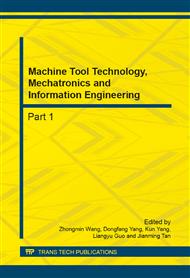p.4477
p.4482
p.4487
p.4491
p.4496
p.4501
p.4505
p.4509
p.4513
A Secure Lightweight Mutual Authentication for RFID Systems
Abstract:
Radio Frequency Identification (RFID) technology is an automated identification technology which is widely used to identify and track all kind of objects. It is well suitable for many fields and is expected to replace barcodes in the near future. However, it is a challenging task to design an authentication protocol because of the limited resource of low-cost RFID tags. Recently, a lightweight RFID authentication protocol presented by Kulseng et al uses Physically Unclonable Functions (PUFs) and Linear Feedback Shift Registers (LFSRs) which are well known lightweight operations. The number of gates which the protocol require can be significantly decreased. Unfortunately, their protocol faces several serious security issues. In this paper, based PUFs and LFSRs, we suggest a secure mutual authentication for low-cost RFID Systems. Security analysis shows that our protocol owns security and privacy.
Info:
Periodical:
Pages:
4496-4500
Citation:
Online since:
September 2014
Keywords:
Price:
Сopyright:
© 2014 Trans Tech Publications Ltd. All Rights Reserved
Share:
Citation:


